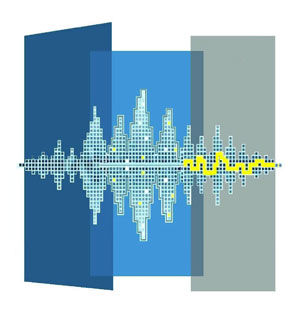Saturday 14th October– morning
Music and scientific research
Stefan Koelsch
Professor at the Institute for Biological and Medical Psychology at the University of Bergen (Norway)
Brain correlates of music-evoked emotions and implications for therapy
Music is a universal feature of human societies, partly owing to its power to evoke strong emotions and influence moods. During the past decade, the investigation of the neural correlates of music-evoked emotions has been invaluable for the understanding of human emotion.
This presentation will illustrate – in a way that also non-neuroscientists can understand – that functional neuroimaging studies on music and emotion show that music can modulate activity in brain structures that are known to be crucially involved in emotion (such as the amygdala, nucleus accumbens, hypothalamus, hippocampus, insula, cingulate cortex and orbitofrontal cortex). The potential of music to modulate activity in these structures has important implications for the use of music in the treatment of psychiatric and neurological disorders.
Emmanuel Bigand
Professor of Cognitive Psychology at Institut Universitaire de France and Université de Bourgogne France Compté
Applications of cognitive psychology of music to Alzheimer’s patients
Experimental research provided numerous evidence that musical activities contribute to reduce the effects of Alzheimer disease. In the first part of this talk, I will review some of these studies including those performed by our group which showed that lyrics are better learned and memorized when presented in a spoken or sung form. After repeated learning episodes, learning sung lyrics – even on an unfamiliar melody – led to better retention of words. Thus, music may provide a more robust aid for consolidation in memory than spoken lyrics alone. In a further study, we assess the potential of music to assist in the learning of sequences of gestures in normal and pathological aging. Participants with mild Alzheimer’s disease (AD) and healthy older adults (controls) learned sequences of meaningless gestures that were either accompanied by music or a metronome. We also manipulated the learning procedure such that participants had to imitate the gestures to-be-memorized in synchrony with the experimenter or after the experimenter during encoding. Overall, musical accompaniment had no impact on the controls’ performance but improved those of AD participants. Conversely, synchronization of gestures during learning helped controls but seemed to interfere with retention in AD. We discuss these findings regarding their relevance for a better understanding of auditory-motor memory. In the second part of this talk I will present a clinical experiment run with a group of Alzheimer patients during 15 days, where patient were both request to learn new song and to dance on music. This experiment was the matter of a French documentary entitled « La mélodie d’Alzheimer » which will be shortly presented.
Luisa Lopez
Chief Medical at Rehabilitation Centre Villaggio E. Litta di Grottaferrata; scientific advisor for Neuroscience and Music project of Mariani Foundation
Music Therapy and learning disabilities
In the scientific literature music therapy applies to various interventions from music listening during invasive procedures to actual music therapy with expert music therapists. Another interesting chapter refers to the effects of music training on intelligence, executive functions and learning. In particular, there are interesting
reports on the effects of music on learning disorders, namely dyslexia. Until recently, there was no confirmation of these reports in the italian population. Furthermore, as suggested by Pennington, musical training for reading is defined as a process-based
intervention and as such requires a demonstration of the actual effect on reading performance. In the randomized controlled study “Rhythm and music to rehabilitate reading disorders” (Grant Mariani Foundation), we investigated whether a musical training was more effective than a painting training could ameliorate reading performance in a group of 48 dyslexic children, based on the temporal integration deficit hypothesis. The results show that non word reading accuracy and phonemic blending actually improved significantly more in the music group as compared to the painting group.


